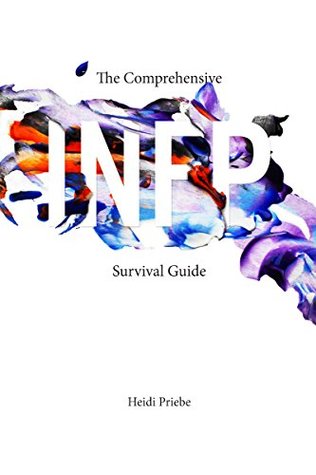More on this book
Community
Kindle Notes & Highlights
React best to positive, supportive interaction with parents and authority figures Crave understanding, connection and validation from their loved ones above all else.
INFPs have an intense dislike of conflict and are likely to become deeply upset by schoolyard disputes or fights with friends, taking these clashes extremely personally.
To the INFP, everything that happens is an extension of their very identity. Performing poorly on a school assignment, disappointing a parent or failing at an activity they attempt may impact the INFP and their self-perception much more deeply than their parents or loved ones realize.
“I advise you to stop sharing your dreams with people who try to hold you back, even if they’re your parents. Because, if you’re the kind of person who senses there’s something out there for you beyond whatever it is you’re expected to do—if you want to be EXTRA-ordinary—you will not get there by hanging around a bunch of people who tell you you’re not extraordinary. Instead, you will probably become as ordinary as they expect you to be.”
Gah! I have always felt I was meant to do something, but here I am, quite ordinary and no idea how to break out of that. Damn CFS doesnt help either.
Still, does this really mean that I can't live a fulfilling life if I can't pursue my dream and do something to help the world?
INFPs often find themselves feeling sure of who they are but lost on what to do about it as they move through their late teens and twenties.
And 30s and 40s. And then when they think they have at least figured out a path, they get sick. Gah! Ah well, I guess the trick is to keep looking for a way, but also accept what is.
Don’t ask what the world needs. Ask what makes you come alive, and go do it. Because what the world needs is people who have come alive. —Howard Thurman
This type is driven by the desire to help and heal the world around them—and they need a career that gives them at least some small means of doing so every day.
the key to workplace success for the INFP will always be passion.
how the INFP responds to every major upset and challenge—by attempting to find a way to integrate it into their river. By finding the truth inside of the pain, the compassion inside of the betrayal and the undeniably beautiful inside of the tragic. The INFP—perhaps more so than any other type—possesses the unique ability to assimilate what is painful and unforgivable with what is beautiful and worthy of being renewed—and to let it all flow onward together.
Extroverted intuition keeps the waters of introverted feeling moving—regularly blowing new articles into it for the INFP to examine, explore and integrate into the complex ecosystem of their minds.
If introverted feeling is a river, introverted sensing is the grooves in the land that the water has carved out over years of movement. Introverted sensing reminds introverted feeling of where it’s been—keeping track of the paths the INFP has walked down and gently guiding the river’s flow.
If introverted feeling is a river, extroverted thinking is a series of manmade dams that control the flow of water.
Perhaps the single most important component of a relationship for the INFP is to find someone whom they can be their authentic selves around—without any restraint or apology. This type spends an immense amount of time molding and straining themselves to fit in with what the world expects from them.
INFPs tend to naturally gravitate towards either accommodating or avoidant styles of conflict resolution.
In situations where they perceive their core values to be threatened or questioned, this type may be pushed towards a more defensive confrontation style.
The INFP is likely to use a mixture of all three confrontation styles at various points in his or her life, as well as alternate, more aggressive forms of confrontation in extreme situations. As they mature and become more comfortable balancing their introverted feeling with extroverted thinking, the INFP’s conflict style moves naturally towards an Assertive one.
Once they learn to balance their extreme empathy with reason and structure, this type often becomes incredibly skilled at conflict resolution. Prior to maturation, the INFP tends to default to one of the three following methods of dealing with conflict:
In order for the INFP to work toward an assertive—rather than defensive—communication style, they must remember to engage their extroverted intuition before responding to criticism or reacting to a perceived violation of their value system. By taking a moment to reflect on where the other party is coming from and recognizing that he or she may not be attacking the INFP’s values at all but simply pushing his or her own agenda, the INFP will be able to re-frame the root of the misunderstanding and approach it assertively, rather than defensively.
The INFP often presents as more extroverted than they really are. Wanting others to feel comfortable and open in their presence, this type is prone to overextending themselves socially as they attempt to make everyone around them happy.
Many INFPs express that they feel extreme guilt over setting boundaries.
Setting boundaries is never easy—but it’s something every INFP must learn to do eventually. Nicole, an INFP, offers the following reminder to her fellow healers: “At the end of the day I tell myself this: Healthy people are always going to respect your need for boundaries. It’s only toxic people who won’t. So never, ever feel guilty for setting them. The people who truly love you will be glad that you’re taking care of yourself!”
Give the INTJ time and patience to sort through their feelings—understand that they are not as readily available to him or her as yours are to you. Be open and direct about your needs within the relationship—they are important, but not always immediately recognizable to the INTJ.


